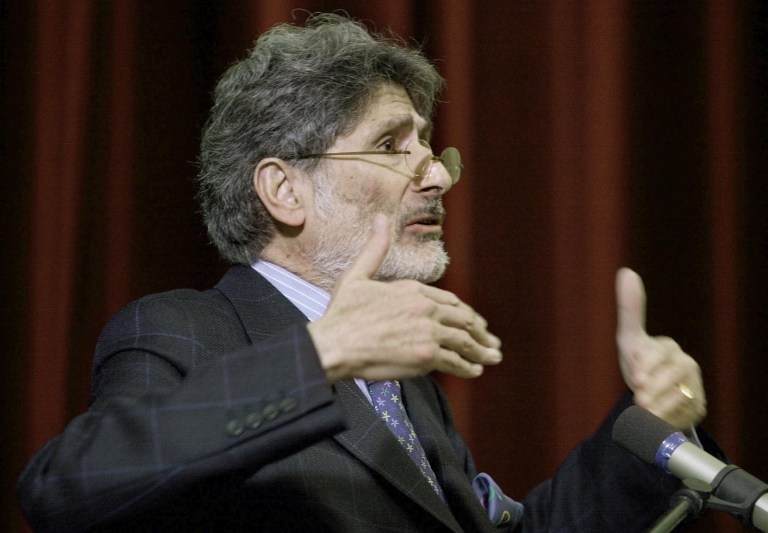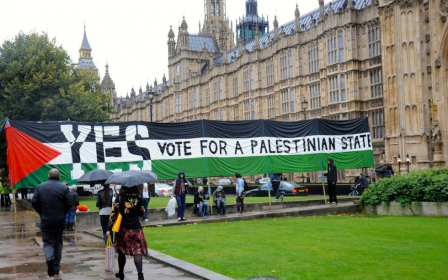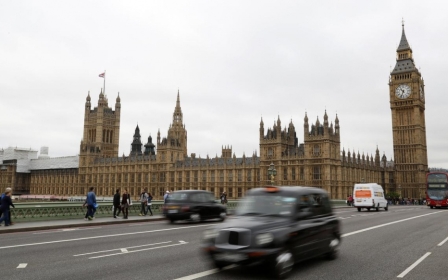In memory of Edward Said: the one-state solution

With the symbolic recognition this week of the state of Palestine “alongside the state of Israel” in the UK, the decades-long debate was fuelled again. The advocates of a two-state solution in the international community and the stubborn backers of the Oslo Accords are shining their shoes and vesting their suits.
In the meantime, a wise Palestinian-American theorist and intellectual is rolling in his grave. Edward Said said it long ago and it can’t be more accurate today: “The question, I believe, is not how to devise means for persisting in trying to separate them, but to see whether it is possible for them to live together as fairly and peacefully as possible.”
Those who advocate partition are ignorant of the complexities of Israeli-Palestinian relations within and without Israel. The paradox of apartheid policies in Israel is that Israel seeks separation between the settlers and the natives, yet it simultaneously seeks expansion which forces interaction, and in some cases, integration.
Some British MPs spoke of the implausibility of a two-state solution in their speeches that preceded the vote. They seem to have a solid understanding of how horrendous and severe the occupation has become and how overwhelming the settlements are in presumably Palestinian territories.
Yet, the “friends of Israel” and the Zionists in general have managed to amend even a symbolic non-binding motion to recognise Palestine and turned it into a conditional recognition that is tied to a two-state solution.
With the international legitimacy crisis that Israel is facing, a major debate among the Zionist groups - especially the American Israel Public Affairs Committee (AIPAC) - is heating up. Some Zionists see in a two-state solution a permanent and uncontested legitimisation of the Jewish state while managing to keep the neighbouring Palestinian state weak and unstable. Others in the Zionist chambers reject giving away land whilst being able to grab more without any repercussions.
At a time when colonial political manoeuvres and populous sectarian political discourse dominate the conflict, numerous Jewish and Palestinian scholars have mutually accentuated the one and only solution to the crisis. As Edward Said puts it, Oslo “set the stage for separation,” yet permanent peace can happen only with a binational Israeli-Palestinian state.
Historian and essayist Tony Judt pleaded in his book “Israel: the alternative” that “the true alternative facing the Middle East in coming years will be between an ethnically cleansed Greater Israel and a single, integrated, binational state of Jews and Arabs, Israelis and Palestinians.”
Ex-deputy mayor of Jerusalem, Meron Benvenisti, believes that Israelis and Palestinians are already living in a “binational reality”. Hannah Arendt, Martin Buber, Judah Magnes, Ilan Pappe, and many other prominent Jewish voices argued for a binational state. While more people admit the irreversible reality of the occupation, more will acknowledge the only viable solution left: coexistence.
In a modern context, coexistence doesn’t seem to be a far-fetched culture. Yet in the context of the Palestinian-Israeli conflict, it is. The reasons are not only related to elite interests and foreign policy inertia, they are also related to the ideologies that drive both sides of the conflict.
Edward Said described the claim that Palestine is “principally and exclusively” Arab as a nationalistic myth and a radical simplification of “a land of many histories”. This is not to feed the Zionist myth either, but it is to acknowledge the rich multi-cultural, multi-ethnic, and multi-religious nature of Palestine which is perpetually threatened by Zionist hegemony.
In a realistic yet principled stance, Said admits that both the claims of a God-promised land for the Jews and of an Arab land for Palestinians must be “reduced in scale and exclusivity”. This can be done while preserving both the Jewish culture and the Palestinian culture, and all the other diverse subgroups in between.
If it is neither an exclusively Jewish land, nor an exclusively Arab land, then what is Palestine and how can a binational one-state become a permanent solution? While several examples in contemporary history can inspire the process of a one-state, the Palestine-Israel case remains peculiarly complex due to its long history, severe costs, colonial reality, and imbalance of power.
Said believed that the most important social feature for a successful one-state in Palestine is the practice of citizenship in a modern sense of the term. In other words, by sharing rights and responsibilities under a law that treats all as equal, citizenship prevails over ethnic and religious chauvinism. When the same privileges, resources, and opportunities are available to all, the legitimacy of nationalistic ideologies and exclusionary dogmas will be forever lost.
In order to trigger a citizen-driven culture, Said suggested drafting a constitution and a bill of rights that acknowledges both peoples’ right to self-determination - as in the right to practice communal life freely under the law.
The stubborn question that managed to complicate an already complicated peace process is that of Jerusalem. The complication stems from the Zionist rejection of a secular alternative that governs the life in the land of Semitic religions - Judaism, Christianity, and Islam. It is vital for both peoples to admit that their existence is a secular existence which does not undermine nor threaten the imperative role of their different religious beliefs in their lives.
Jerusalem stands, in a secular binational state, as the capital of all, with equal and free access to its venues. The capital, just like the rest of the Holy Land, must be protected and governed under secular laws that protect the civil and juridical rights of its people.
This humanistic alternative that Said and many other scholars from both sides argue for is the alternative to further outrageous colonial partition and/or continuous war. As Tony Judt put it in his book, it’s time to “think the unthinkable".
New MEE newsletter: Jerusalem Dispatch
Sign up to get the latest insights and analysis on Israel-Palestine, alongside Turkey Unpacked and other MEE newsletters
Middle East Eye delivers independent and unrivalled coverage and analysis of the Middle East, North Africa and beyond. To learn more about republishing this content and the associated fees, please fill out this form. More about MEE can be found here.





